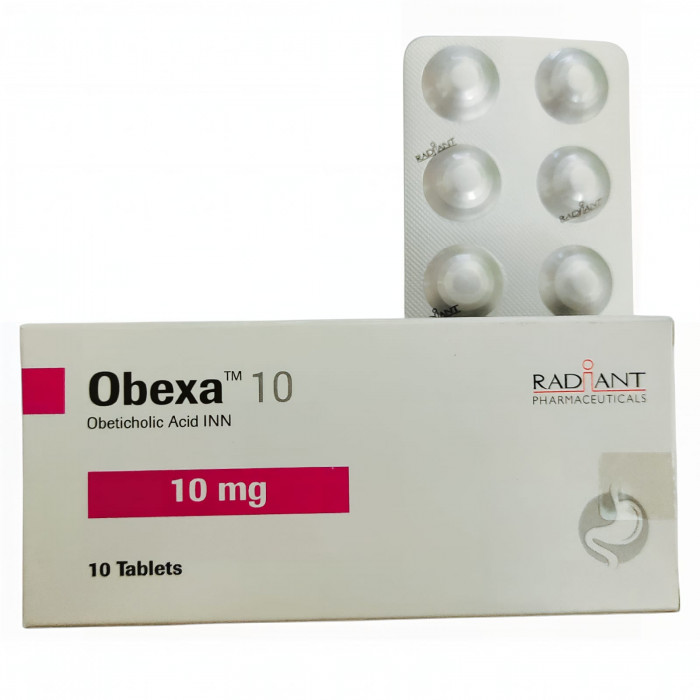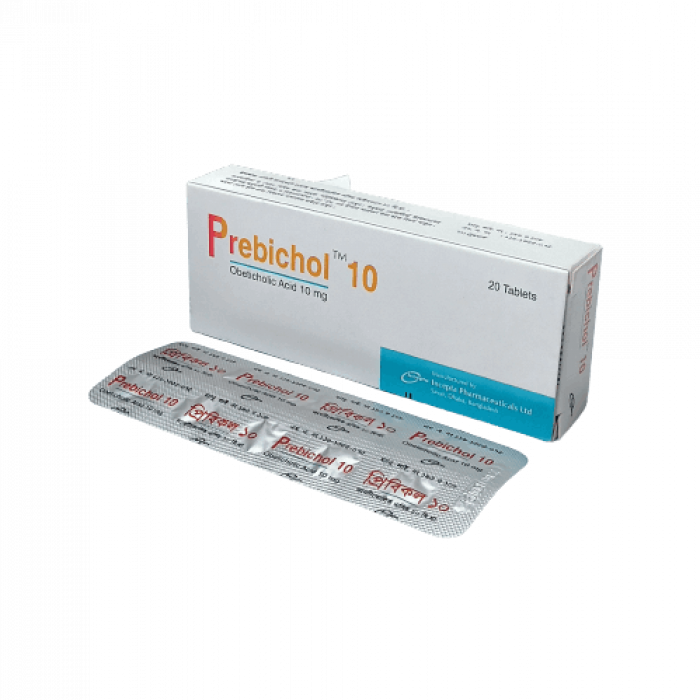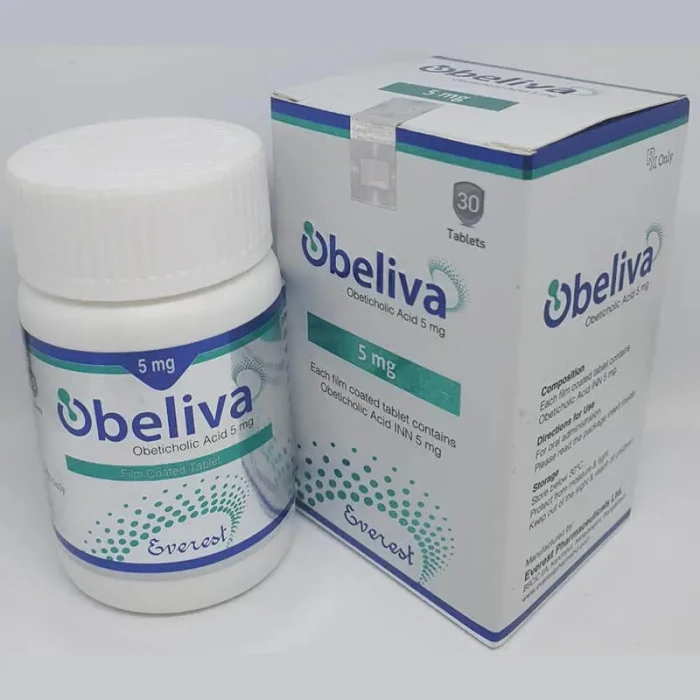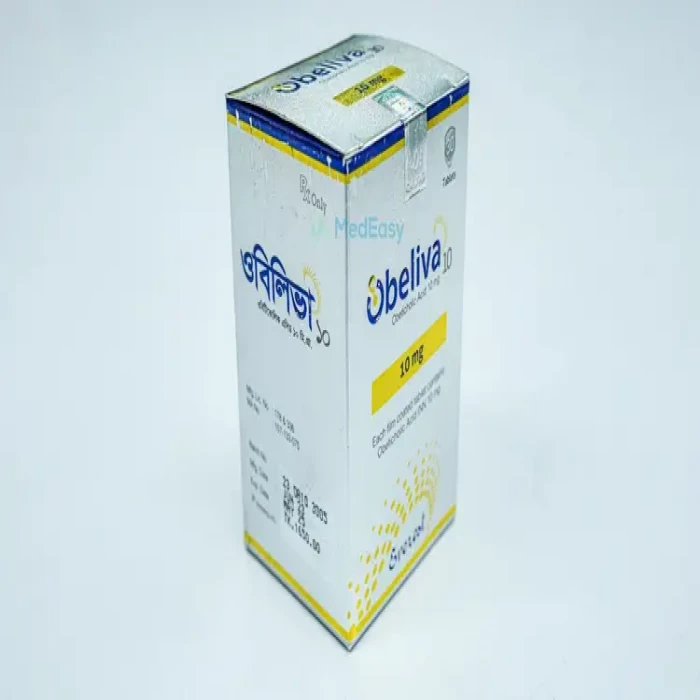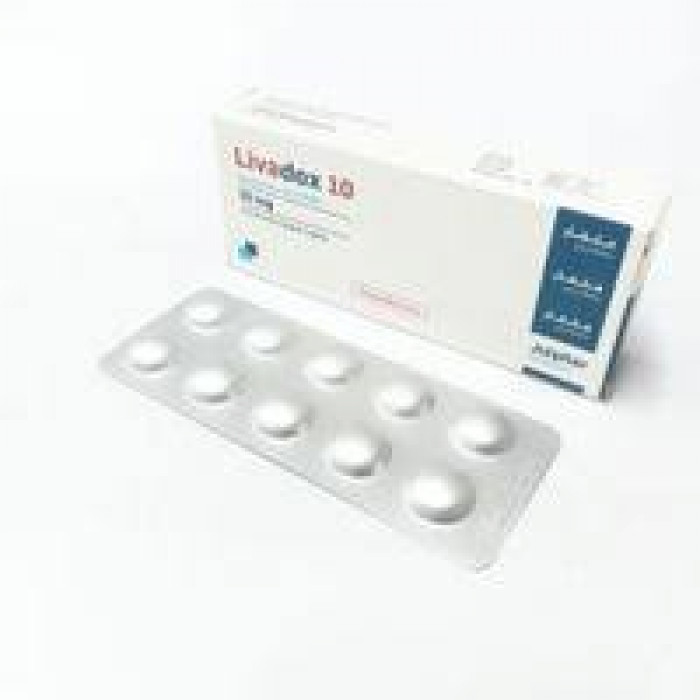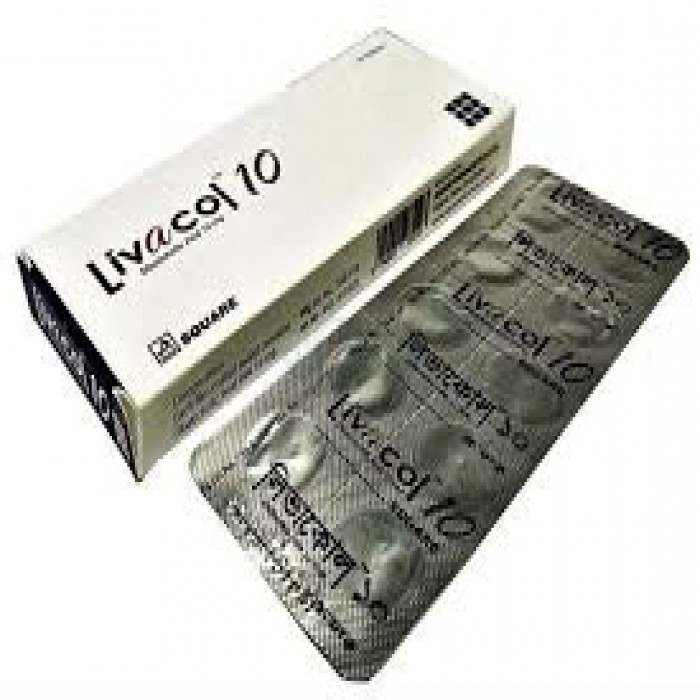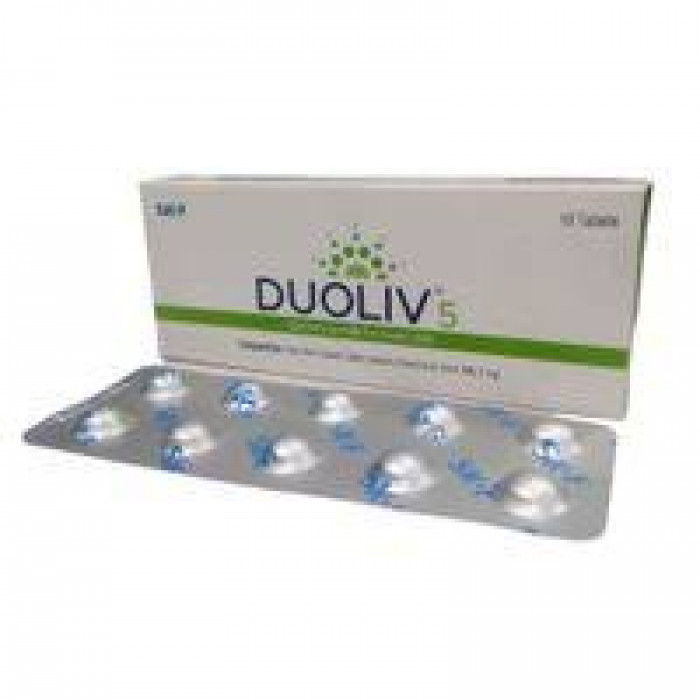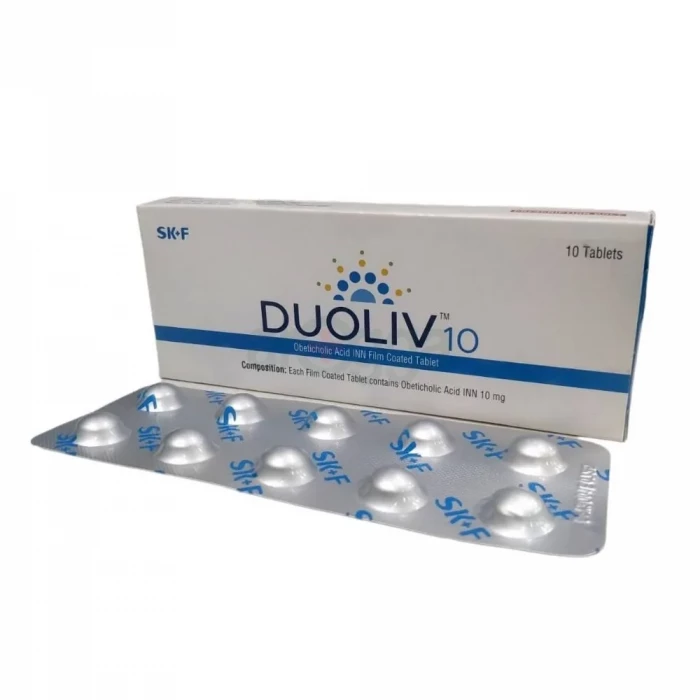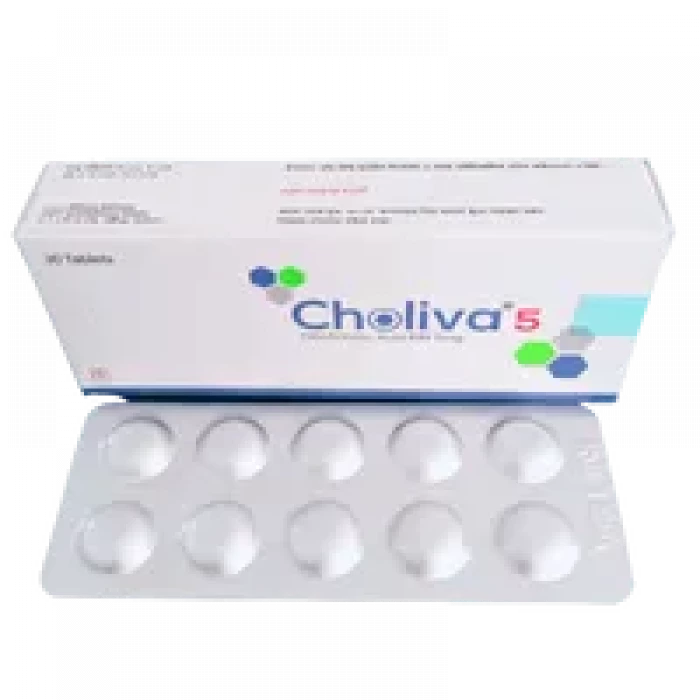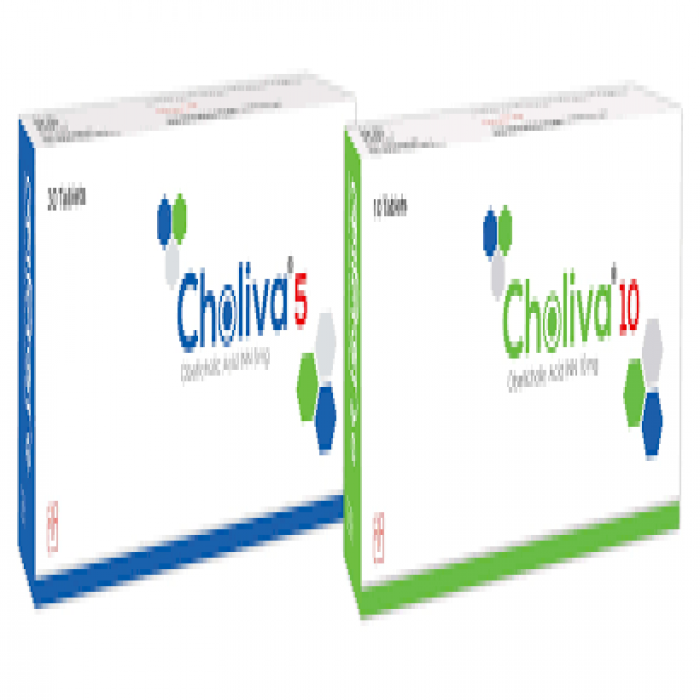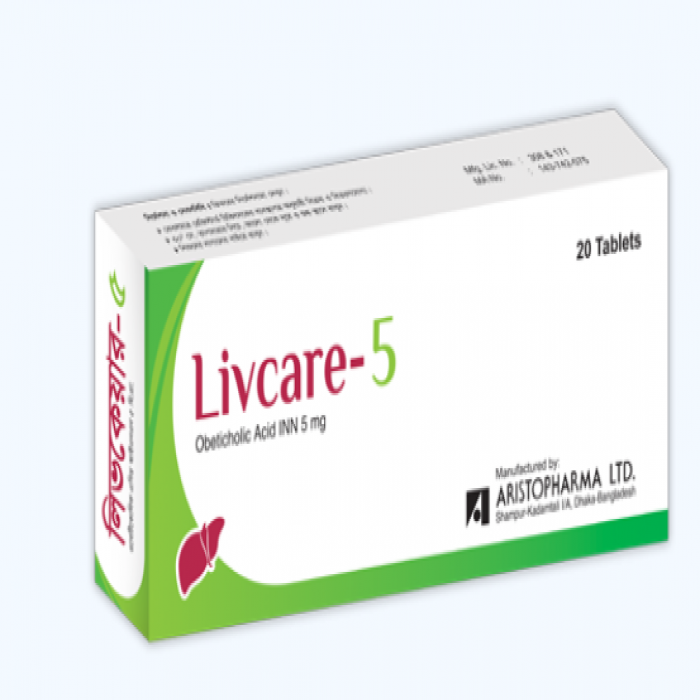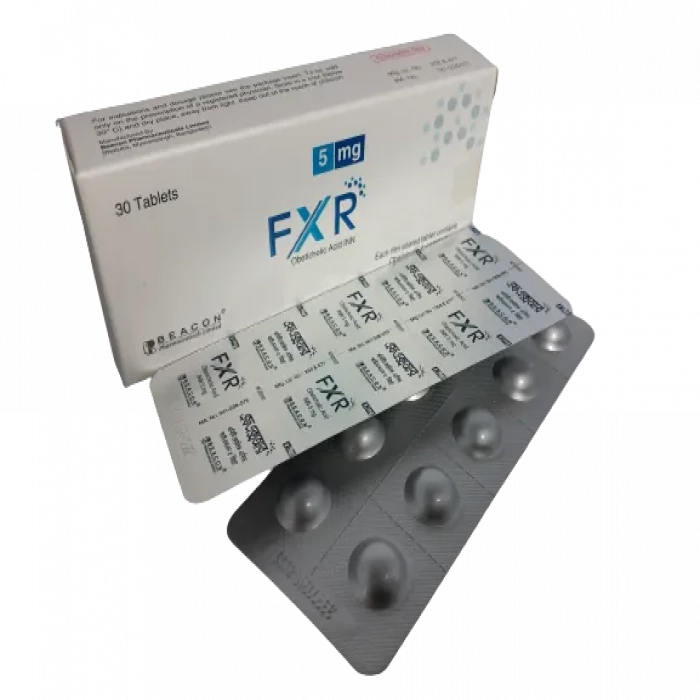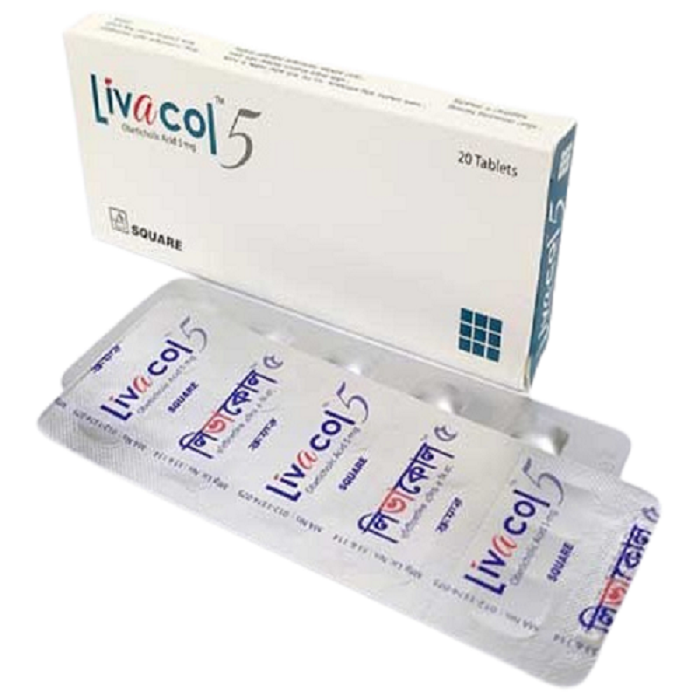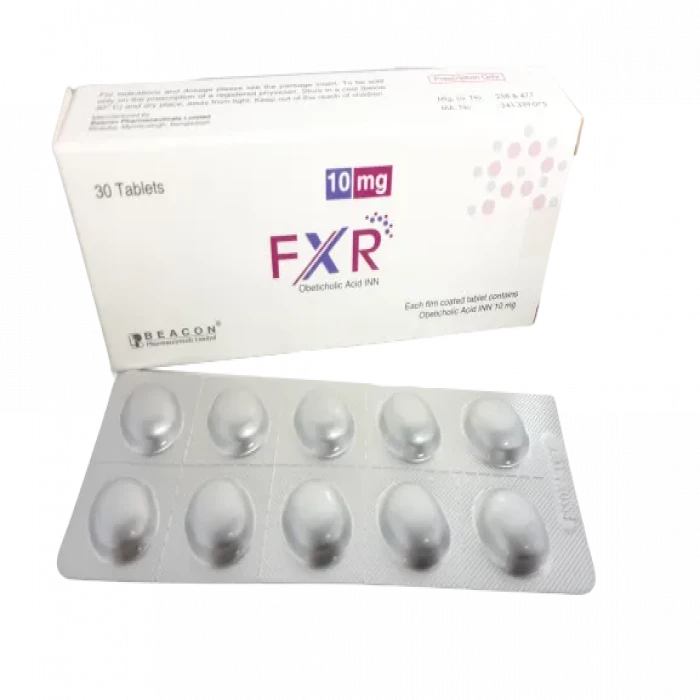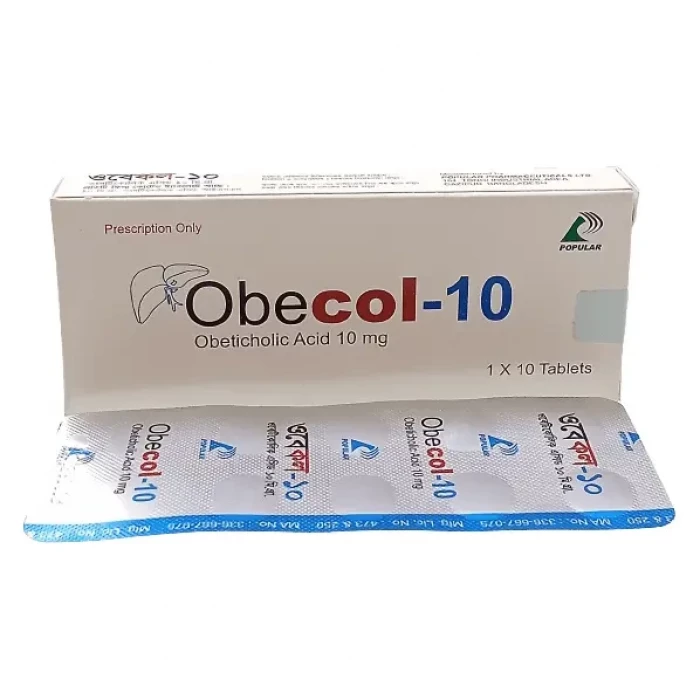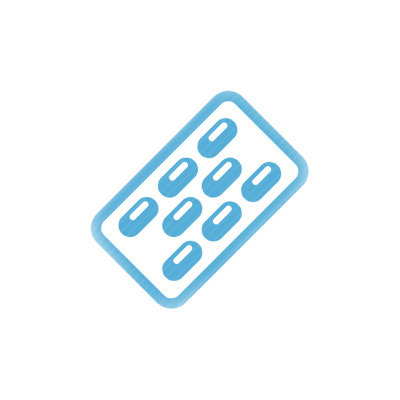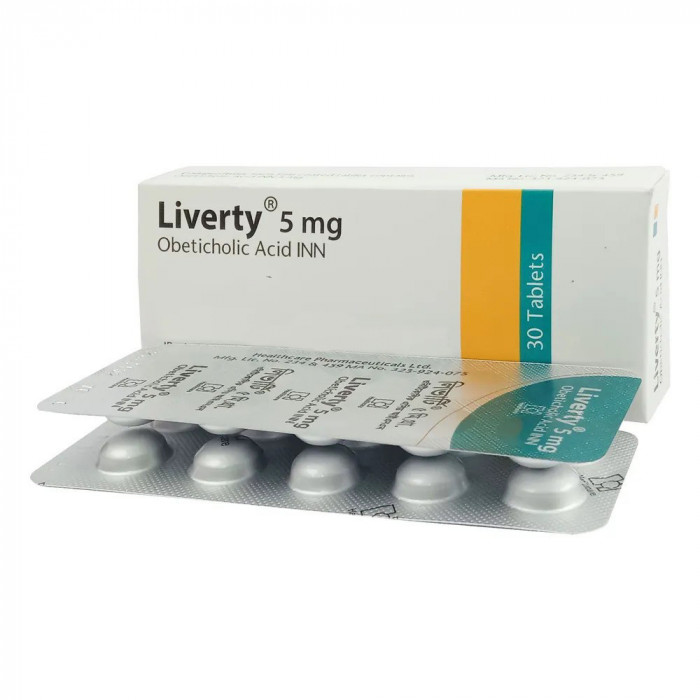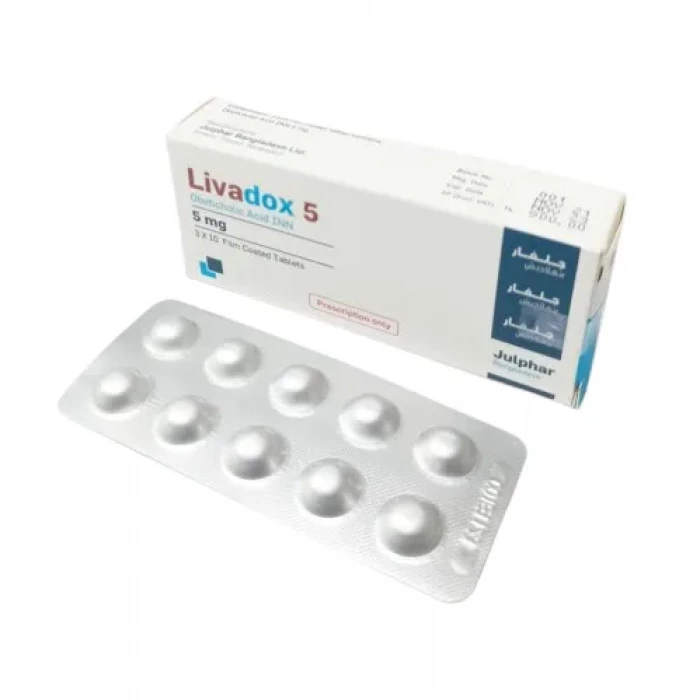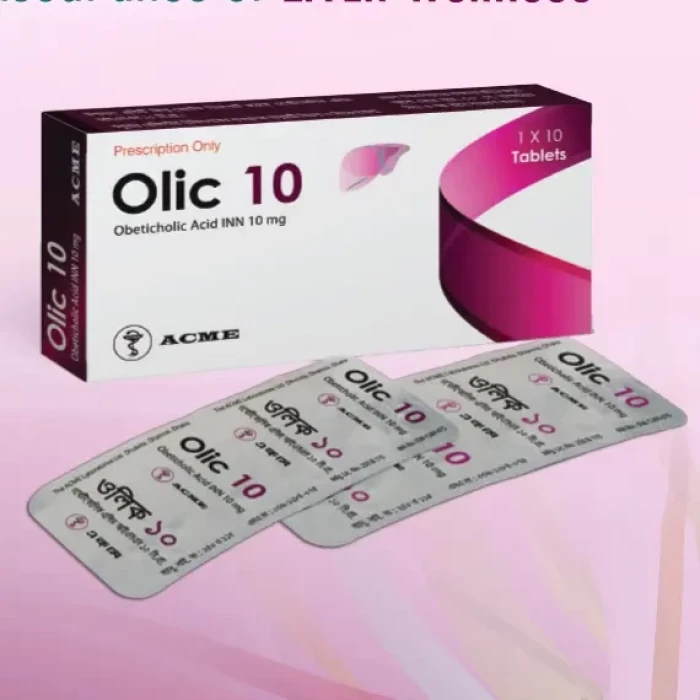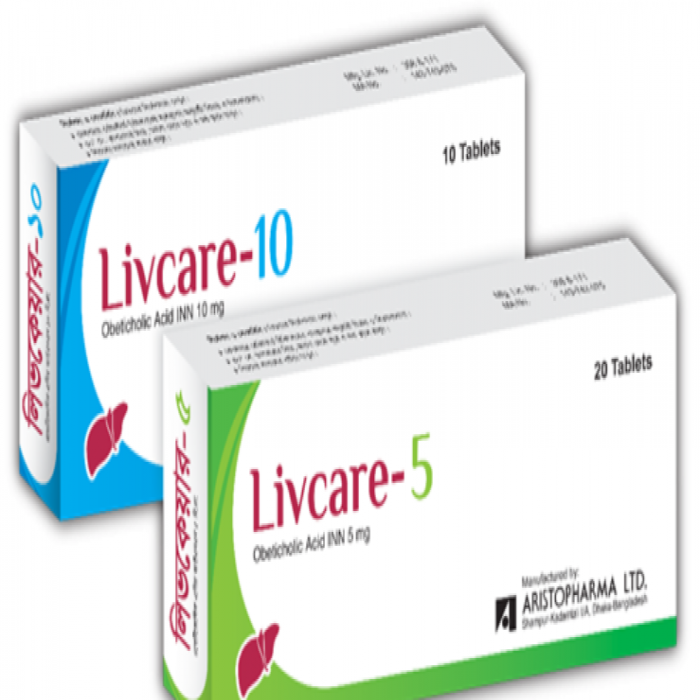
✔ 100% Authentic Product
👁️ Currently Viewing 3110
Livcare 10mg Tablet is used alone or in combination with treatment for certain liver diseases (primary biliary cholangitis-PBC).
Discount
Price: ৳ 523
MRP:
৳
550
5%
Off

100% Genuine Products, Guaranteed

Safe & Secure Payments, Always

Fast, Secure & Efficient Delivery

Proper Packaging
 Cash on Delivery - All over Bangladesh
Cash on Delivery - All over Bangladesh Regular Delivery - 12-24 Hours, Dhaka City* Charge Tk.39-59
Regular Delivery - 12-24 Hours, Dhaka City* Charge Tk.39-59 Regular Delivery - 24-48 Hours, Other Cities* Charge Tk.99-110
Regular Delivery - 24-48 Hours, Other Cities* Charge Tk.99-110
🌙 রমযান অফার 🌙
 ফ্রি ডেলিভারিঃ - ৭৯৯ টাকা+ অর্ডারে, ঢাকা
শহরে
ফ্রি ডেলিভারিঃ - ৭৯৯ টাকা+ অর্ডারে, ঢাকা
শহরে ফ্রি ডেলিভারিঃ - ২৭৯৯ টাকা+ অর্ডারে, ঢাকার
বাহিরে
ফ্রি ডেলিভারিঃ - ২৭৯৯ টাকা+ অর্ডারে, ঢাকার
বাহিরে
📲 মোবাইল অ্যাপ অর্ডারে সাশ্রয় বেশী
-
Google Play Store থেকে ডাউনলোড
-
Apple Store থেকে ডাউনলোড
100% Genuine Products, Guaranteed
Safe & Secure Payments, Always
Fast, Secure & Efficient Delivery
Proper Packaging
 Cash on Delivery - All over Bangladesh
Cash on Delivery - All over Bangladesh Regular Delivery - 12-24 Hours, Dhaka City* Charge Tk.39-59
Regular Delivery - 12-24 Hours, Dhaka City* Charge Tk.39-59 Regular Delivery - 24-48 Hours, Other Cities* Charge Tk.99-110
Regular Delivery - 24-48 Hours, Other Cities* Charge Tk.99-110 ফ্রি ডেলিভারিঃ - ৭৯৯ টাকা+ অর্ডারে, ঢাকা
শহরে
ফ্রি ডেলিভারিঃ - ৭৯৯ টাকা+ অর্ডারে, ঢাকা
শহরে ফ্রি ডেলিভারিঃ - ২৭৯৯ টাকা+ অর্ডারে, ঢাকার
বাহিরে
ফ্রি ডেলিভারিঃ - ২৭৯৯ টাকা+ অর্ডারে, ঢাকার
বাহিরে- Google Play Store থেকে ডাউনলোড
- Apple Store থেকে ডাউনলোড
🌙 রমযান অফার 🌙
📲 মোবাইল অ্যাপ অর্ডারে সাশ্রয় বেশী
✅ Description:
Obeticholic acid is prescribed as a standalone treatment or in combination with ursodiol (Actigall, Urso) for the management of primary biliary cholangitis (PBC). PBC is a liver disease that results in the destruction of bile ducts, leading to the retention of bile in the liver, causing damage. This medication belongs to a class of drugs known as farnesoid X receptor agonists. Its mechanism of action involves reducing the production of bile in the liver and enhancing the removal of bile from the liver. Obeticholic acid is typically recommended for individuals who cannot tolerate ursodiol or for those who did not achieve successful results with ursodiol treatment alone.
Safety Advices

Alcohol
CONSULT YOUR DOCTOR
As for alcohol consumption, while taking Livcare 10mg Tablet, there is limited information regarding any potential interactions. It is recommended to consult with your doctor about whether it is safe to consume alcohol while on this medication.

Pregnancy
UNSAFE
The use of Livcare 10mg Tablet during pregnancy is not recommended due to limited information available regarding its effects on pregnant women.

Breastfeeding
CONSULT YOUR DOCTOR
Regarding breastfeeding, there is no available information on whether Livcare 10mg Tablet passes into human breast milk. Breastfeeding women should only use this medication if advised by a doctor after assessing the need and potential risks.

Driving
CAUTION
When it comes to driving, Livcare 10mg Tablet is reported to have minimal effect on driving ability. However, if you experience any symptoms after taking the medicine that could impair your ability to drive safely, it is advisable not to drive.

Kidney
Please consult your doctor if you have kidney impairment or any concerns regarding this.

Liver
CONSULT YOUR DOCTOR
Dose adjustment may be needed. Please consult your doctor if you have a liver impairment or any concerns regarding this. Inform your doctor if you have/had liver cirrhosis.
✔️ Uses of Livcare 10mg Tablet
Primary biliary cirrhosis
✔️ Direction for Use:
Take Livcare 10mg Tablet as advised by your physician. Swallow the medicine with a glass of water. Do not crush or chew the medicine. Your doctor will decide the correct dose and duration for you depending on your age, body weight, and disease condition.
✔️ Side Effects of Livcare 10mg Tablet
Common side effects of Livcare 10mg Tablet may include:
- Stomach pain
- Feeling tired
- Itching of the skin
- Thyroid hormone irregularity
- Dizziness
- Fast or irregular heartbeat (palpitations)
- Pain in the mouth and throat
- Constipation
- Dry skin
- Dryness, irritation, redness, crusting, or drainage of the skin (eczema)
- Rash
- Pain in joints
- Swelling in the hands and feet
- Fever
Rare but severe side effects that require immediate medical attention and discontinuation of Livcare 10mg Tablet include:
- Severe itching (pruritus)
- Worsening of liver problems (symptoms include swelling of the stomach area due to fluid build-up, yellowing of the skin or white of the eyes, black, tarry, or bloody stools, coughing up or vomiting blood, or vomit that looks like coffee grounds, mental changes such as confusion, increased sleepiness, difficulty waking up, slurred speech, mood swings, or changes in personality)
- Severe symptoms such as stomach-area pain, nausea, vomiting, diarrhea, loss of appetite or weight loss, new or worsening fatigue, weakness, fever, chills, light-headedness, and less frequent urination.
✔️ Primary biliary cholangitis
Primary biliary cholangitis (PBC) is a chronic liver disease that gradually damages the bile ducts within the liver. Bile ducts are small channels responsible for transporting bile, which aids in digestion and the absorption of certain vitamins, as well as removing cholesterol, toxins, and old red blood cells from the body. PBC is an autoimmune disease where the immune system mistakenly attacks healthy liver cells, leading to bile duct damage, scarring of liver tissue (cirrhosis), and, eventually, liver failure.
PBC is more common in women, and it is believed to result from a combination of genetic and environmental factors. The disease typically develops slowly, and while there is no cure, medications can help slow the progression of liver damage, especially when treatment is initiated early.
The symptoms of PBC may not be noticeable in the early stages, and it is often diagnosed through routine blood tests. Common early symptoms include fatigue and itchy skin, while later signs and symptoms may include dry eyes and mouth, upper right abdominal pain, enlarged spleen, musculoskeletal pain, swollen feet and ankles, and more.
The exact cause of PBC is unclear, but it is thought to involve an autoimmune response triggered by a combination of genetic and environmental factors. In PBC, the immune system targets and damages the cells lining the small bile ducts within the liver. This ongoing inflammation causes scarring, leading to cirrhosis over time.
Risk factors for PBC include being female, age between 30 to 60, a family history of the disease, and geographic factors, with higher prevalence in certain regions. The exact cause of autoimmune diseases like PBC remains unknown, but they are believed to result from complex interactions between genetics and environmental factors.
As PBC progresses, it can lead to complications, such as cirrhosis, enlarged veins (varices), portal hypertension, spleen enlargement, gallstones, liver cancer, weak bones (osteoporosis), vitamin deficiencies, high cholesterol, decreased mental function (hepatic encephalopathy), and an increased risk of other autoimmune conditions.
Diagnosis of PBC typically involves blood tests to detect specific antibodies and elevated liver enzymes. Additionally, imaging tests, such as abdominal ultrasounds or MRIs, may be performed to assess liver and biliary system health. In some cases, a liver biopsy may be needed to confirm the diagnosis.
Management and treatment of PBC mainly involve medications, with ursodeoxycholic acid (UDCA) often used to slow down the disease and reduce liver damage. In cases where UDCA is not effective, obeticholic acid can be an alternative treatment. Specific symptoms, such as itching, can be managed with antihistamines, while vitamin supplements can help prevent deficiencies. Liver transplant surgery is an option for those whose liver function continues to deteriorate despite medication.
PBC tends to progress slowly, and with early diagnosis and treatment, many people can manage their symptoms effectively. While there is no cure, patients can live for many years with PBC, and the prognosis is particularly good for those who receive successful liver transplants. The progression of PBC can take an average of 15 to 20 years to reach the terminal stage, and life expectancy can vary depending on the stage at which it is diagnosed and treated. Those who receive liver transplants have a favorable outlook, with a 10-year survival rate of 65%.
✔️ Pharmacology
Obeticholic acid activates the nuclear receptor FXR (Farnesoid X receptor), which is predominantly found in the liver and gut. FXR plays a pivotal role in regulating various biological pathways, including those related to bile acids, inflammation, fibrosis, and metabolism. Activation of FXR by obeticholic acid results in several beneficial effects.
Reduction of Intracellular Bile Acids: FXR activation leads to a decrease in the concentration of bile acids within hepatocytes. This is achieved by inhibiting de novo cholesterol synthesis in the liver, which is a precursor for bile acid production.
Increased Bile Acid Transport: FXR activation enhances the transport of bile acids out of hepatocytes, promoting the removal of bile from the liver.
Reduced Hepatic Bile Acid Exposure: The combined effects of reducing intracellular bile acids and increasing their transport out of hepatocytes result in a decrease in the exposure of hepatocytes to bile acids. This is particularly important as excessive bile acid exposure can have toxic effects on liver cells.
Increased Choleretic Action: By reducing the concentration of bile acids within hepatocytes and increasing their removal, obeticholic acid helps improve bile flow and aids in the choleretic process.
✔️ Dosage & Administration
The recommended initial dosage of Obeticholic Acid is 5 mg taken orally once daily. This treatment is intended for adult patients who have not achieved an adequate biochemical response to Ursodeoxycholic Acid (UDCA) at an appropriate dosage for at least 1 year or are unable to tolerate UDCA.
Dosage Titration:
- If after 3 months of treatment with 5 mg of Obeticholic Acid once daily, there has not been a sufficient reduction in alkaline phosphatase (ALP) and/or total bilirubin, and the patient is tolerating the medication, the dosage can be increased to 10 mg once daily.
Maximum Dosage:
- The maximum recommended dosage of Obeticholic Acid is 10 mg taken once daily.
Management of Patients with Intolerable Pruritus on Obeticholic Acid:
- For patients who experience severe itching (pruritus) that is intolerable while taking Obeticholic Acid, several management options can be considered:
- Adding an antihistamine or bile acid binding resin.
- Reducing the dosage of Obeticholic Acid:
- In cases of intolerance to 5 mg once daily, consider a dosage reduction to 5 mg every other day.
- For patients intolerant to 10 mg once daily, a reduced dosage of 5 mg once daily can be considered.
- Temporarily interrupting the dosing of Obeticholic Acid for up to 2 weeks, followed by restarting at a reduced dosage.
These management strategies aim to alleviate intolerable pruritus while ensuring that the patient continues to benefit from Obeticholic Acid treatment.
✔️ Interaction
Before using Livcare 10mg Tablet, it's essential to notify your doctor if you are currently taking any of the following medications:
- Bile acid-binding resins like cholestyramine, colestipol, and colesevelam, are typically prescribed to lower blood cholesterol levels.
- Theophylline is a medication used to prevent and treat wheezing and respiratory conditions.
- Tizanidine is a drug employed to alleviate muscle stiffness and constriction.
- Warfarin is a medication prescribed for the prevention and treatment of blood clots.
✔️ Contraindications
Patients with known hypersensitivity to the medicine or any of its components, as well as those with total biliary obstruction, should not use it.
✔️ Pregnancy & Lactation
The little human data on Obeticholic Acid consumption during pregnancy is insufficient to establish a drug-associated danger. There is no information on Obeticholic Acid's presence in human milk, its effects on breastfed infants, or its impact on milk production.
✔️ Precautions & Warnings
Experiencing symptoms like weakness, yellowing of the skin and eyes (jaundice), abdominal pain and swelling, nausea, vomiting, and swelling in the legs and ankles could be signs of a serious adverse reaction to the medication. If you encounter these symptoms after taking the medicine, it is crucial to seek immediate medical attention, as they may indicate a severe side effect or adverse event.
Excessive itching (pruritus) is another concerning symptom. It is important to inform your healthcare provider if you experience severe or intolerable itching after taking the medicine, as they may need to adjust your treatment plan or provide you with strategies to manage this side effect.
✔️ Storage Conditions
Keep at 15°C to 30°C in a dry, light-protected location. Keep out of children's reach.
⚠️Disclaimer:
At ePharma, we’re committed to providing accurate and accessible health information. However, all content is intended for informational purposes only and should not replace medical advice from a qualified physician. Please consult your healthcare provider for personalized guidance. We aim to support, not substitute, the doctor-patient relationship.




